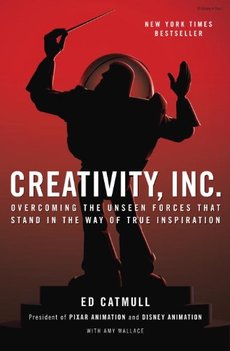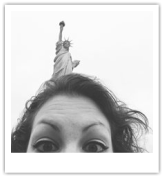But who doesn’t love a good Disney movie, am I right? I mean, my whole childhood was essentially founded on The Little Mermaid & Aladdin. Those stories made me happy when I was a kid, and today nostalgia accounts for the rest. When adulting just gets too rough, you can always just Netflix & chill your way back in time to a simpler life. For me, this is the powerful and timeless simplicity of Disney magic.
But to create these amazing stories to stand the test of time? There are few things that are crafted well enough to last. How can it be done?
Pixar, a part of the Walt Disney company, is a true product of how creativity can be utilized for success. Powerful storytelling is the foundation of each and every thing Pixar produces: the beauty of each detail and the depth of each character always speak right to the heart and ringing with truth.
This truth & simplicity should be the core goal of every piece of your writing: whether creative or professional in nature (or somewhere in-between). Pixar has been able to create timeless stories with every movie they make. This book illustrates how they were able to achieve their consistent and record-breaking successes. As writers you can do the same by using these same principles as discussed in Creativity, Inc.:
1) Mistakes are not a necessary evil.
“They aren’t evil at all. They are an inevitable consequence of doing something new (and, as such, should be seen as valuable; without them, we’d have no originality). And yet, even as I say that embracing failure is an important part learning, I also acknowledge that acknowledging this truth is not enough. That’s because failure is painful, and our feelings about this pain tend to screw up our understanding of its worth. To disentangle the good and the bad parts of failure, we have to recognize both the reality of the pain and the benefit of the resulting growth.”
While this is great life advice, it really hits home with writing. Many writers put off writing for fear of rejection or failure (well…don’t we all?). You can’t look at mistakes or failure as a bad thing – it is simply the result of growth and an opportunity to learn. You cannot do anything new without messing it up, you must embrace the failure and use that lesson to learn what to do instead. You never know if it will work out if you don’t try. Your writing will only get better from trial and error, not worse!
2) To create a lasting product, consider all possible outcomes.
“No amount of planning will guarantee avoidance of failure. You cannot create an ironclad plan – mainly because you don’t know where the details of your research will take you. Pixar researches every detail for their movies to create authenticity in every detail – all with extensive research.”
For example as a writer, if you are writing a story set in NYC, visit the city for research and observation to get the details right. Your reader will recognize the authenticity, even if they’ve never been there.
But maybe while you’re there, you notice details that send your story in a completely different and better direction? You can’t plan for these things. Let them happen. You must make room for them to happen. Authenticity is key, your readers will sense the inaccuracy even if they don’t know why and lose trust you as the author.
3) Creativity is more like a marathon than a sprint.
“In my experience, creative people discover and realize their visions over time and through dedicated, protracted struggle. In that way, creativity is more like a marathon than a sprint. You have to pace yourself.”
Writing is not going to come easy. That romantic view of a writer constantly typing away on that typewriter is a far cry from reality. You will have to work at it – it will never come out perfectly the first time. Keep reviewing and revising, and eventually you will reach that finish line!
Now, I couldn’t possibly fit all of the great advice into one post - these are just a few of the big take-aways I personally had from this book. I encourage everyone to take a peak at this book as it is a very enjoyable read and very inspiring.
Want more? Check out this talk with Ed Catmull himself:



 RSS Feed
RSS Feed
